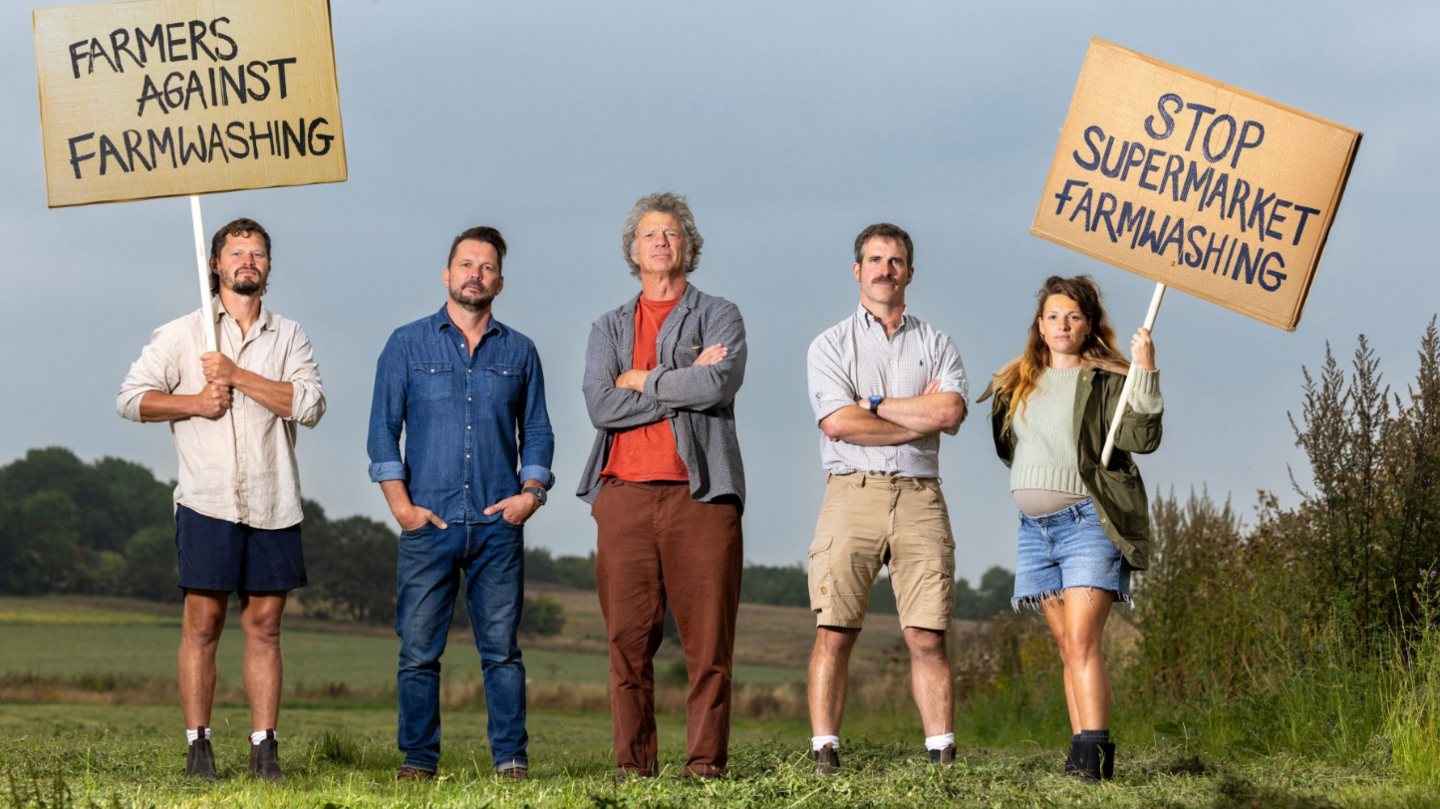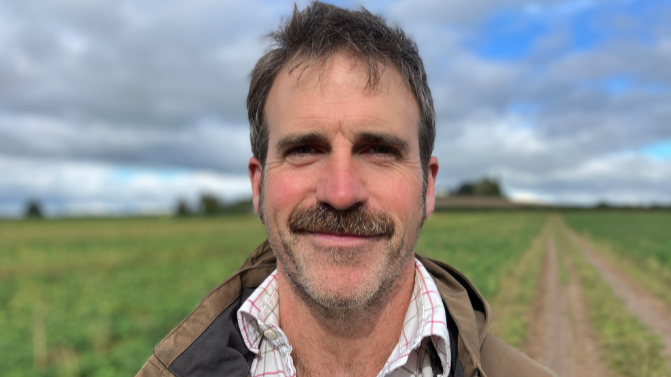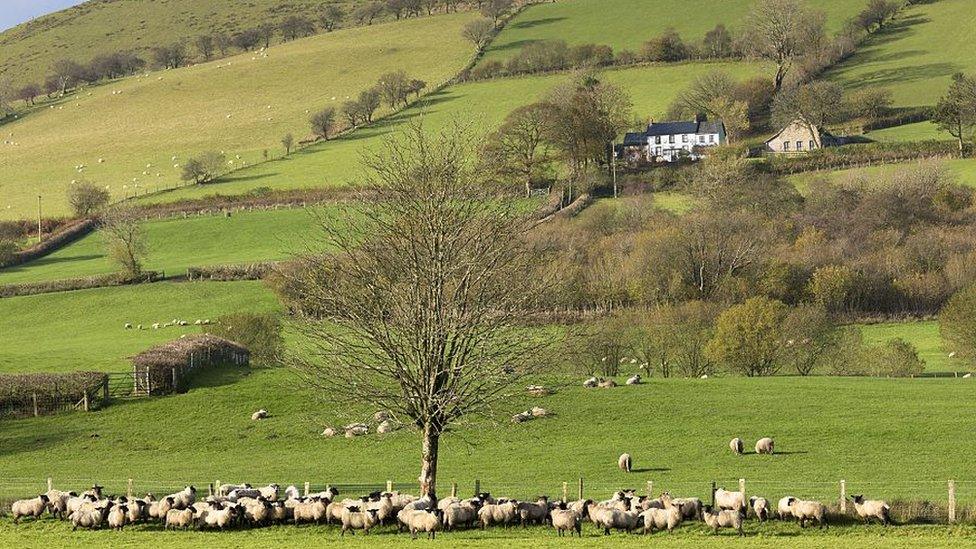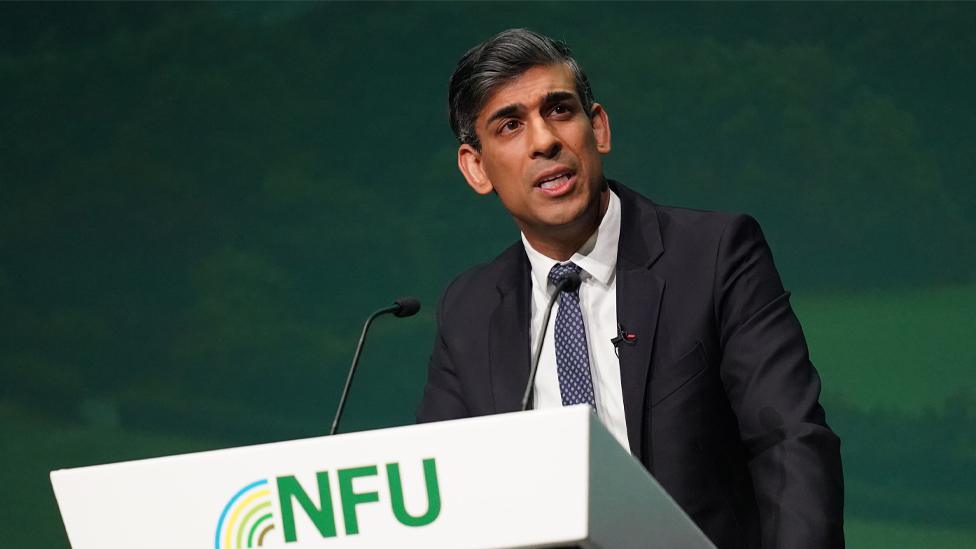Stop farmwashing: Farmers take on big supermarkets

Ben Andrews (second right) has united with Kriss Woodhead, Jimmy Doherty, Guy Singh Watson and Zoe Colville to address the supermarkets
- Published
A farmer says supermarkets are putting farmers livelihoods at risk by making shoppers believe they are buying British when in fact they may not be.
Ben Andrews from Herefordshire is part of a group who have launched Farmers Against Farmwashing - where major supermarkets use fake farm brands to suggest products come from British family farms.
He is one of more than 90 signatories to have issued an open letter to the "big six" supermarkets, calling for an end to the practice.
The British Retail Consortium, which represent supermarkets, said the brands were created for some own-label goods "to help consumers find the quality goods they are looking for."
Poland, Kent - then Peru
Much of the food with the fake brands on - also incorporating the Union Jack - is increasingly sourced from industrial US-style mega farms or from overseas and impacting British farmers, said Mr Andrews, from Leominster.
The misleading practice must be exposed and British farming supported, he said.
He has joined celebrities including Rick Stein and Jimmy Doherty and MP Cat Smith in signing the letter.
"Lots of people will have seen in supermarkets, they'll have been walking down the aisle and you'll see a product that's got the name of a farm on it," he said.
"That branding has got a very British looking logo, conjuring up this idea of a bucolic family farm, but when you look at the small print and where the country of origin is, quite often you can have blueberries that one week come from Poland, next week come from Kent and next week come from Peru."

Ben Andrews said shoppers would be shocked to learn about the tactic
Mr Andrews said: "We feel by putting this under that fake farm name it deceives the shoppers into believing where their food is coming from."
He said research showed the public wanted to support British farmers and falsely leading them to believe they were would come as a surprise.
"People I've spoken to about this, had no idea this was a thing," he said.
"They've noticed it and they can name some of those farms in those supermarkets, but they have no idea that these are just brand names and don't actually exist."
He said farmers faced many day-to-day challenges and could not miss out on trade.
The weather had been "pretty brutal" for the past two years and could not be relied upon against a backdrop of increasing production costs, with the minimum wage also rising, which he said he supported.
'Helping consumers'
Farming protest groups have said more needs to be done to protect UK farmers from competition posed by cheaper imports.
Earlier this year, former Prime Minister Rishi Sunak announced a package of measures to help farmers, which was broadly welcomed by the NFU although the group said they included no actual new money.
Andrew Opie, director of food and sustainability at the British Retail Consortium, said: "Supermarkets are always keen to promote British farming and follow the strict legislation on the labelling of food, including the use of flags.
"In fact, they pushed the government to tighten these rules earlier this year.
"Retailers create new farm brands for some of their own-label goods in order to help consumers find the quality goods they are looking for."
Get in touch
Tell us which stories we should cover in Hereford & Worcester
Follow BBC Hereford & Worcester on BBC Sounds, Facebook, external, X, external and Instagram, external.
Related topics
- Published22 February 2024

- Published20 February 2024
